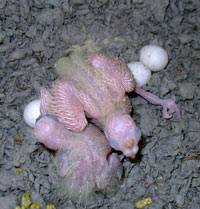I've concluded that it doesn't matter how you do it, as long as you keep writing. I've always been a plotter, someone who meticulously puts together an outline, character sketches that include a family tree going back several generations, costume designs, room designs, you name it. I still have all that material for my fantasy trilogy set in the late 18th century, but I've resisted delving that deeply for my contemporaries. With those, I start with an idea for a story and plot it out. Occasionally, as I'm plotting, the scene comes alive for me. So, I flesh it out more fully with the understanding it will still need editing, and then I plot on.
 |
| Jen Hayley's Virtual Plotting Board out of Post It Digital Notes |
 |
| My virtual plot board on Scrivener |
*(Background: They are both famous, wealthy people, but the hero, who used to teach college drama courses before he left to direct on Broadway, has agreed to teach a college summer camp workshop, and he wants the heroine to do it with him. She senses he has an ulterior motive, and she's right. They are legally separated and she has filed for divorce, but he is determined they try again. She's not at all convinced their getting back together is wise, but he persuades her to spend the summer with him putting on a show.)
When she discovers the musical Peter selected has a spanking scene in it, Kate believes he set out to deliberately trick her and wants him to apologize. Not an unreasonable request, but he refuses because he assumed the spanking scene in "Kiss Me Kate" was famous enough that it didn't require further discussion. So, Kate puts her foot down by invoking a clause in her contract that states he has to provide her with separate lodgings at the camp. That means they won't be sleeping together. Seeing the tactic for what it was, Peter takes her to the cabin his staff has assigned based on Kate's specifications. The resulting scene (from my unedited WIP) is from Peter's POV:
Though Kate was a good actress, the
moment she stepped into the ten-by-ten-foot cabin she did nothing to mask her
dismay. Since the camp catered primarily to students, the cabins tended to be
rustic. Against the far wall sat twin, cot-like metal beds with their bare,
thin mattresses rolled up like bales of barbed wire. Between the beds stood a
small, roughly-hewn table, and at the end of each bed lay an empty army-type
footlocker to serve as dressers in case Kate didn't want to live out of her
luggage.
For hanging clothes, a row of pegs lined up on each side of the door, which also happened to be the only solid wall in the cabin. Half of the other three walls were taken up by screen windows, which, if privacy was desired, could be covered by the rolled-up, green, duck-cloth shades hanging above them. As additional protection, heavy awnings had been stretched along the outside, which could be collapsed in case of inclement weather. No heat, no air conditioning, outside of the occasional cross breeze flowing through the windows, and no electricity.
For hanging clothes, a row of pegs lined up on each side of the door, which also happened to be the only solid wall in the cabin. Half of the other three walls were taken up by screen windows, which, if privacy was desired, could be covered by the rolled-up, green, duck-cloth shades hanging above them. As additional protection, heavy awnings had been stretched along the outside, which could be collapsed in case of inclement weather. No heat, no air conditioning, outside of the occasional cross breeze flowing through the windows, and no electricity.
Kate snapped her gaping mouth shut
and glowered at him. "Is this your idea of a joke?"
He's serious, and if she insists, this is where she
will stay since it fulfills the exact wording she insisted be added to her
contract. When I originally plotted this scene, I imagined Kate would be so angry
with Peter that she'd stay in this cabin to spite him, but as I fleshed the scene out I realized she'd
be so horrified by the thought of living with so few amenities and having to share a communal toilet and shower, that her pride would
have to bend. So, she agrees to stay
with him in his luxurious, by comparison, air-conditioned and fully-equipped
cabin when he sweetly asks her to reconsider. Not
a big deal, but it did turn something in the plot. He gave a little by asking instead of
demanding, and she relented. Give and
take.
So, even though I plot out my story, I go where my
characters take me. There's a lot of
push, pull and take in this book, and though these two head-strong characters are in love, they
are not above trying to top each other whenever they get the chance. Peter does wear the pants in the
relationship, however, and he's perfectly willing to press his point if his darling Kate makes it necessary.
It's a fun romantic comedy that I hope will make readers
laugh and cry.




























